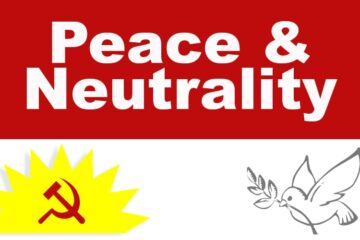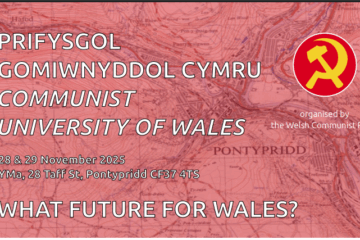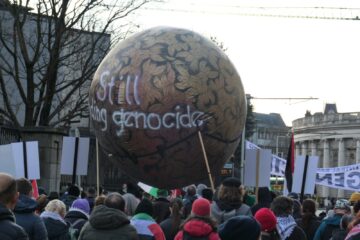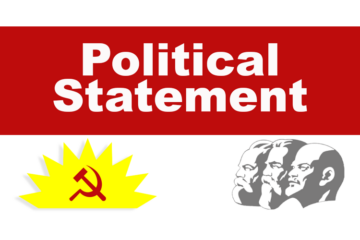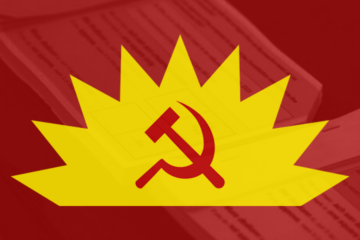The instability of capitalism deepens.
For a second time in less than 20 years the economic model pursued by the Irish ruling class is facing a crisis. The US government decision to impose 20% tariffs on EU imports to the US, as the US capitalist class attempts to halt its relative decline vis-à-vis the socialist People’s Republic of China, as well as major capitalist powers in the “Global South”, has the potential to destabilise the Irish economy. The Irish government has warned that 80,000 jobs are at risk.
The economic policy pursued by the Irish ruling class for over six decades, irrespective of which parties have governed, has resulted in lopsided, precarious development. The economy’s dependence on Foreign Direct Investment and the US as its biggest export market has left the Irish economy extremely vulnerable. That two-thirds of our exports to the US are in Medical, Pharmaceutical and Organic Chemicals (produced by US firms based in Ireland), and that we act as a clearing house for Multinational tax avoidance and evasion, has intensified the instability of the economy.
The economic and social policy options available to the Irish government in response to US tariffs are limited resulting from its unquestioning support for EU integration and the centralising of almost all economic levers into the hands of the EU Commission. Any reactions or responses to these tariffs will be determined by the needs and interests of major European powers such as Germany and France and the material interests of European monopoly capitalism. This was reflected previously when the Irish state was forced by the EU to take responsibility for 42% of all EU banking debt during the last crisis. The needs and interests of the working class in Ireland will be peripheral.
Experience has shown Irish workers that the first response of all previous governments was and will be to cut back on social spending and once again make the working class pay for the failures of capitalism. The government’s primary objective will be to protect the interests of capital and that of private property.
Working people in the British controlled part of Ireland have even less opportunities or potential to influence or change the response of the British government to the imposition of 10% tariffs. It can only further exacerbate the fault line that is partition.
The Labour movement, especially the trade union movement, must immediately begin to organise in resisting all attempts to foist the burden onto the working people of Ireland north and south.
While only about 3% of enterprises in Ireland were owned by foreign multinationals in 2022, these enterprises accounted for 71% of the total turnover (€921 billion) and Gross Value Added (GVA) (€301 billion). 27% of employment in the private sector is directly or indirectly dependent upon transnational corporations based here.
While at the same time the Irish capitalist class has investments valued at $322 billion in the US and £82 billion in Britain. Ireland is not a poor country but very unequal. It is an economically and socially divided society. Workers have no control over the wealth they create.
The Irish working class can no longer afford the cost of capitalism, nor its deep contradictions and inherent instability. What is needed is a socialist, planned economy geared towards the needs of society and not the greed of the wealthy. We need housing, hospitals, schools and socially necessary infrastructure.
We need to bring the economy under democratic control. This would require a planned and sustainable use of our natural resources and the democratic control and ownership of capital. Only a democratic state under the control and direction of working people can mobilise and allocate resources to what is socially necessary.
The solution to the oncoming crisis does not lie in Leinster House or Stormont. Mobilise in your workplaces, your communities, your unions, your schools and colleges, your cultural and sports clubs.
- NO RETURN TO AUSTERITY!
- SOCIALISM NOT BARBARISM OF CAPITALISM!



